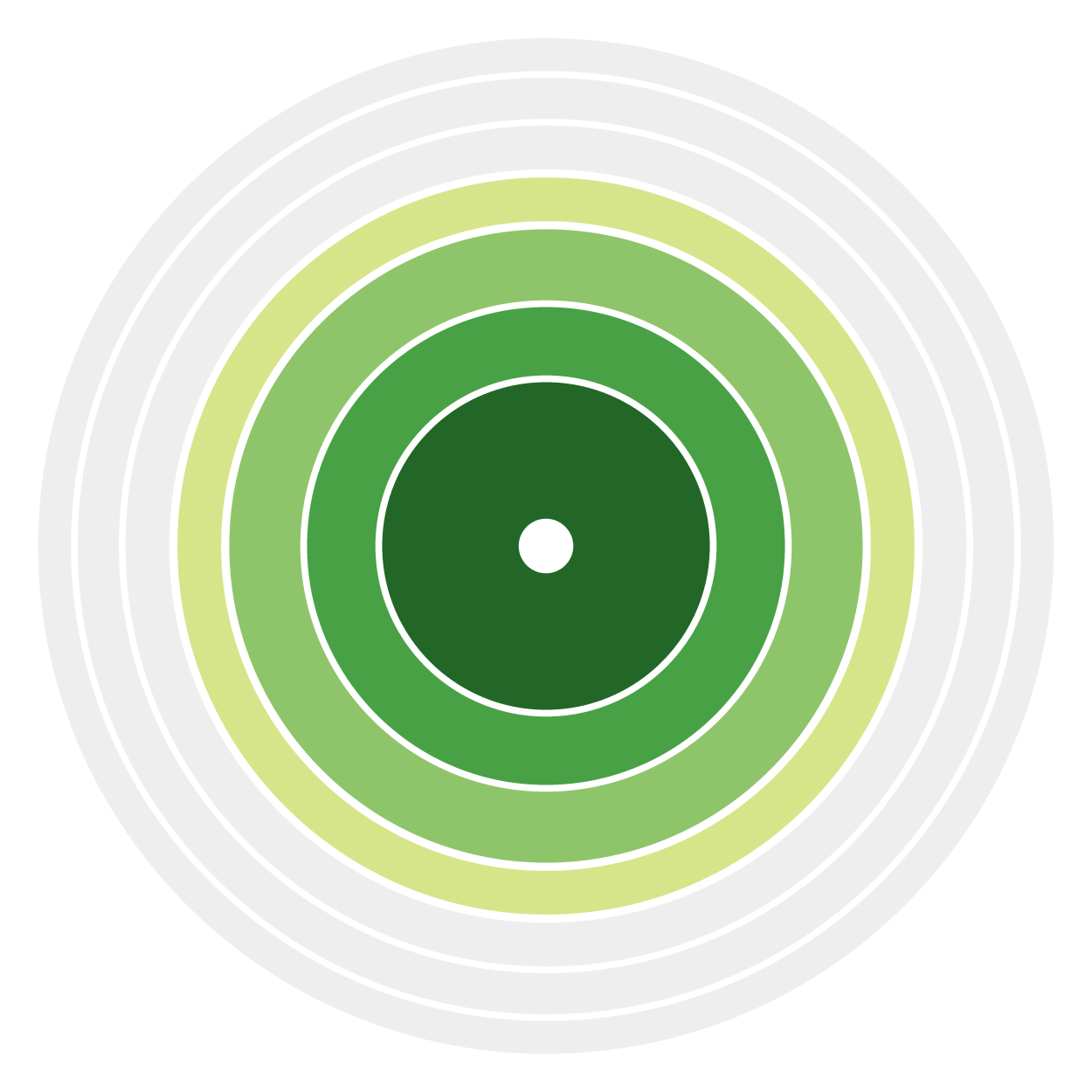Japanese vocabulary in the Routledge 5000 frequency list
Routlege 5000 Vocab 1-100
QUICK STUDY
FLASHCARDS
DOWNLOAD
particle
1. at (place, time); in; on; during2. to (direction, state); toward; into
(click the word to view an additional 7 meanings, examples and links)
particle
1. topic marker particle (pronounced わ in modern Japanese)2. indicates contrast with another option (stated or unstated)
(click the word to view an additional 1 meaning, examples and links)
particle
1. indicates direct object of action2. indicates subject of causative expression
(click the word to view an additional 4 meanings, examples and links)
particle
1. indicates sentence subject (occasionally object)2. indicates possessive (esp. in literary expressions)
(click the word to view an additional 1 meaning, examples and links)
particle, conjunction
1. if; when2. and
(click the word to view an additional 4 meanings, examples and links)
particle
1. too; also; in addition; as well; (not) either (in a negative sentence)2. both A and B; A as well as B; neither A nor B (in a negative sentence) (as AもBも)
(click the word to view an additional 3 meanings, examples and links)
particle
1. indicates location of action; at; in (にて is the formal literary form)2. indicates time of action
(click the word to view an additional 4 meanings, examples and links)
Most common form: ている
ichidan verb, auxiliary verb
indicates continuing action or state (e.g. to be ..ing, to have been ..ing) (from ..て or で plus いる; colloquialism)(click the word to view an additional 2 forms, examples and links)
Most common form: られる
auxiliary verb, ichidan verb
1. indicates passive voice (incl. the "suffering passive") (see also: 未然形, 迷惑の受身; れる for 五段 verbs, られる for 一段. Follows the imperfective form of (v5) and (vs) verbs)2. indicates the potential form (see also: ら抜き言葉; no imperative form. Infrequently used in modern Japanese, e.g. 歩ける is favoured over 歩かれる)
(click the word to view an additional 2 meanings, examples and links)
expression
1. called; named; that says; that (often written with kana only)2. as many as; as much as (after a quantity; often written with kana only)
(click the word to view an additional 1 meaning and 1 form, examples and links)
Most common form: 通
'na' adjective, noun (suffix)
1. connoisseur; authoritycounter
2. counter for letters, notes, documents, etc.(click the word to view an additional 1 form, examples and links)
interjection (kandoushi)
1. yes; that is correct; right2. um; errr
(click the word to view an additional 3 meanings and 1 form, examples and links)
1. to say; to utter; to declare
2. to name; to call
(click the word to view an additional 1 reading, 1 meaning and 4 forms, useful expressions, examples and links)
interjection (kandoushi)
say; well; errr ...(click the word to view an additional 2 forms, examples and links)
irregular 'ru' godan verb, intransitive verb
1. to be (usu. of inanimate objects); to exist; to live (see also: 居る; often written with kana only)2. to have (often written with kana only)
(click the word to view an additional 3 meanings and 2 forms, examples and links)
particle
1. indicates emphasis, agreement, request for confirmation, etc.; is it so (at sentence end)interjection (kandoushi)
2. hey; come on; listen(click the word to view an additional 1 meaning and 4 forms, examples and links)
auxiliary adjective
1. not (verb-negating suffix, may indicate question or invitation with rising intonation)(click the word for useful expressions, examples and links)
'ru' godan verb, intransitive verb
1. to become; to get; to grow; to be; to reach; to attain (often written with kana only)2. to result in; to prove to be
(click the word to view an additional 6 meanings and 2 forms, examples and links)
particle
1. indicates a question (sometimes rhetorical) (was written as 歟, used at sentence-end)2. or; whether or not (after each alternative)
(click the word to view an additional 5 meanings, examples and links)
1. that (something or someone distant from the speaker, close to the listener; actions of the listener, or ideas expressed or understood by the listener); the (see also: 何の, 此の, 其れ, 彼の; often written with kana only)
interjection (kandoushi)
2. um...; er...; uh...(click the word to view an additional 1 form, examples and links)
particle
1. from (e.g. time, place, numerical quantity); since2. from (originator); by
(click the word to view an additional 4 meanings, examples and links)
auxiliary verb
1. (I) will; (I) shall (on non-五段 stem, e.g. 食べる→食べよう, indicates intention)auxiliary verb
2. let's (on non-五段 stem, indicates suggestion or invitation)(click the word to view an additional 1 meaning, examples and links)
'u' godan verb, transitive verb
1. to think; to consider; to believe (想う has connotations of heart-felt)2. to think (of doing); to plan (to do)
(click the word to view an additional 5 meanings and 6 forms, useful expressions, examples and links)
1. in that way (concerning the actions of the listener or concerning the ideas expressed or understood by the listener; with a neg. sentence, implies that something isn't as much as one might think); thus; such (see also: 斯う, ああ, 如何; often written with kana only)
interjection (kandoushi)
2. so (used to express agreement with something said) (often written with kana only)(click the word to view an additional 1 meaning and 1 form, examples and links)
pronoun, 'no' adjective
1. what(click the word to view an additional 1 reading, 4 meanings and 3 forms, examples and links)
pronoun, 'no' adjective
1. I; menoun, 'no' adjective
2. private affairs; personal matter; secrecy (this meaning is restricted to reading わたくし)(click the word to view an additional 1 reading, 1 meaning and 2 forms, examples and links)
'u' godan verb, transitive verb
1. to finish; to stop; to end; to put an end to; to bring to a close (often written with kana only)2. to close (a business, etc.); to close down; to shut down; to shut up (often written with kana only)
(click the word to view an additional 2 meanings and 4 forms, examples and links)
pronoun, 'no' adjective
1. that (indicating an item or person near the listener, the action of the listener, or something on their mind); it (see also: 何れ, 此れ, 彼・あれ; often written with kana only)2. that time; then
(click the word to view an additional 2 meanings and 3 forms, examples and links)
particle, conjunction
among other things; such things as; or something like that(click the word for examples and links)
Most common form: ない
2. unpossessed; unowned; not had
(click the word to view an additional 4 meanings, examples and links)
irregular godan verb 'iku/yuku', intransitive verb
1. to go; to move (in a direction or towards a specific location); to head (towards); to be transported (towards); to reach (see also: 来る)2. to proceed; to take place (see also: 旨く行く; い sometimes omitted in auxiliary use)
(click the word to view an additional 1 reading, 8 meanings and 4 forms, useful expressions, examples and links)
Most common form: させる
auxiliary verb, ichidan verb
1. auxiliary verb indicating the causative (せる is for 五段 verbs, させる for 一段, follows the imperfective form of (v5) and (vs) verbs, senses 1-3 of せる are sometimes abbreviated as 〜す)2. auxiliary verb indicating that one has been granted the permission to do something (usu. as 〜(さ)せてもらう, 〜(さ)せていただく, etc.; humble)
(click the word to view an additional 1 meaning, examples and links)
pronoun
1. this (indicating an item near the speaker, the action of the speaker, or the current topic) (see also: 何れ, 其れ, 彼:あれ; often written with kana only)2. this person (usu. indicating someone in one's in-group) (humble)
(click the word to view an additional 4 meanings and 7 forms, examples and links)
particle
1. (sentence end, mainly masc.) indicates emotion or emphasis2. (used with masu stem verb) command (from なさい; abbreviation)
(click the word to view an additional 1 meaning and 3 forms, examples and links)
particle
that being the case; because of ...; the reason is ....; given that...(click the word for examples and links)
noun
1. man; person2. human being; mankind; people
(click the word to view an additional 5 meanings and 2 forms, useful expressions, examples and links)
particle
1. indicates certainty, emphasis, contempt, request, etc. (at sentence-end)2. used when calling out to someone (after a noun)
(click the word to view an additional 2 meanings, examples and links)
1. in this way (used for something or someone close to the speaker, including the speaker himself, or for the opinions of the speaker); thus; such (see also: 然う, ああ, 如何; often written with kana only)
interjection (kandoushi)
2. uh... (interjection used as a verbal pause) (often written with kana only)(click the word to view an additional 1 form, examples and links)
particle
1. if ... then; when2. and (often ...も...ば...も...)
(click the word to view an additional 3 meanings, examples and links)
Most common form: くる
irregular verb くる, intransitive verb
1. to come (spatially or temporally); to approach; to arriveirregular verb くる, intransitive verb, auxiliary verb
2. to come back; to do ... and come back (see also: 行って来る)(click the word to view an additional 3 meanings and 2 forms, examples and links)
ichidan verb, transitive verb
1. to see; to look; to watch; to view; to observe2. to look over; to look on; to assess; to examine; to judge (see also: 診る)
(click the word to view an additional 4 meanings and 3 forms, useful expressions, examples and links)
particle
1. -ing and -ing (e.g. "coming and going") (as …たり…たり, after the ren'youkei forms of multiple verbs)2. (used adverbially) doing such things as...
(click the word to view an additional 3 meanings, examples and links)
adverbial noun (fukushitekimeishi), noun
now; the present time; just now; soon; immediately; (one) more(click the word for examples and links)
1. good; excellent; fine; nice; pleasant; agreeable (also いい (all senses); often written with kana only)
2. sufficient (can be used to turn down an offer); ready; prepared
(click the word to view an additional 2 meanings and 6 forms, examples and links)
2. sufficient (can be used to turn down an offer); ready; prepared (see also: 良い)
(click the word to view an additional 2 meanings and 1 form, examples and links)
noun, suffix
1. place; spot; scene; site (also pronounced どころ when a suffix)2. address (often written with kana only)
(click the word to view an additional 1 reading, 9 meanings and 4 forms, examples and links)
pronoun, 'no' adjective
1. myself; yourself; oneself; himself; herself2. I; me
(click the word to view an additional 1 meaning, examples and links)
interjection (kandoushi)
1. Ah!; Oh!; Alas! (also written as 於乎, 於戯, 嗟乎, 嗟夫, 吁, etc.; often written with kana only)2. Yes; Indeed; That is correct (often written with kana only)
(click the word to view an additional 2 meanings and 7 forms, examples and links)
1. as expected; sure enough; just as one thought (see also: やっぱり; often written with kana only)
2. after all (is said and done); in the end; as one would expect; in any case (see also: やっぱり; often written with kana only)
(click the word to view an additional 3 meanings and 2 forms, examples and links)
auxiliary adjective
1. want to ... do something; would like to ... (after the -masu stem of a verb)particle
2. indicates emphasis (at sentence-end; regional dialect: Kyuushuu-ben)(click the word to view an additional 1 meaning, examples and links)
'ru' godan verb, transitive verb
1. to do; to undertake; to perform; to play (a game); to study (see also: 為る; often written with kana only; colloquialism)2. to send; to dispatch; to despatch (often written with kana only)
(click the word to view an additional 14 meanings and 2 forms, examples and links)
noun
1. inside; in2. among; within
(click the word to view an additional 2 meanings, useful expressions, examples and links)
ichidan verb, intransitive verb
1. to be (of animate objects); to exist (see also: 在る; often written with kana only)2. to stay (often written with kana only)
(click the word to view an additional 1 meaning and 2 forms, examples and links)
Most common form: できる
ichidan verb, intransitive verb
1. to be able to do; to be possible; to be permitted (to do) (often written with kana only)2. to be good at; to do well; to be proficient (in); to be capable (often written with kana only)
(click the word to view an additional 8 meanings and 3 forms, examples and links)
particle
1. et cetera; etc.; and the like; and so forth (often written with kana only)2. or something (after an approximate quote or vague suggestion; often written with kana only)
(click the word to view an additional 1 meaning and 2 forms, examples and links)
expression
1. as (i.e. in the role of); for (i.e. from the viewpoint of)2. apart from... (used to change the topic)
(click the word to view an additional 2 meanings, examples and links)
suffix, particle
1. approximately; about; around; or so (also written as 位)2. to (about) the extent that; (almost) enough that; so ... that ...; at least
(click the word to view an additional 1 meaning, examples and links)
expression, 'i' adjective
is not; am not; are not (often written with kana only)(click the word to view an additional 1 form, examples and links)
noun
1. direction; way; side; area (in a particular direction)2. side (of an argument, etc.); one's part
(click the word to view an additional 5 meanings, examples and links)
irregular godan verb 'iku/yuku', auxiliary verb
to continue (from ..て or で plus 行く; colloquialism)(click the word for examples and links)
particle
indicates direction or goal (e.g. "to") (pronounced え in modern Japanese)(click the word for examples and links)
particle, conjunction
(at the end of a phrase) notes one (of several) reasons(click the word for examples and links)
'no' adjective, 'na' adjective, adverb, noun
1. truth; reality; actuality; fact2. proper; right; correct; official
(click the word to view an additional 3 readings, 1 meaning and 5 forms, examples and links)
1. to hold (in one's hand); to take; to carry
2. to possess; to have; to own
(click the word to view an additional 3 meanings, useful expressions, examples and links)
ichidan verb, intransitive verb
1. to leave; to exit; to go out; to come out; to get out (opposite: 入る)2. to leave (on a journey); to depart; to start out; to set out
(click the word to view an additional 18 meanings, useful expressions, examples and links)
Kanshudo is your AI Japanese tutor, and your constant companion on the road to mastery of the Japanese language.
To get started learning Japanese, just follow the study recommendations on your Dashboard.
You can use Quick search (accessible using the icon at the top of every page) to look up any Japanese word, kanji or grammar point, as well as to find anything on Kanshudo quickly.
For an overview, take the tour.




